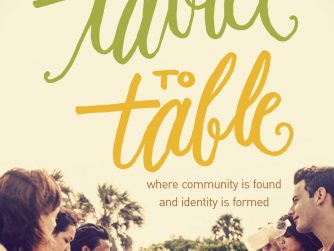Introduction:
Here the authors lay out their intent in the book. ¢â‚¬Å“This book will assist you in being able to think through your context, apply universal principles in your mission setting, and then identify and apply strategies that will make you more effective in your context.¢â‚¬ A phrase came to mind: ¢â‚¬Å“it¢â‚¬â„¢s the system stupid, not the technique.¢â‚¬ The authors make their case for this quite well in chapter two.
Chapter One: The emerging Glocal Context.
A summary of this chapter is as follows:
1.Cultural barriers blind people from understanding the Gospel. The task of the missional code breaker is to find the right way to break through the cultural barriers while addressing the spiritual and theological ones as well.
2.North American has become a Glocal Community, a global reality with our local reality.
3.The ¢â‚¬Å“come and see¢â‚¬ model has hurt us (my interpretation).
4.The cultural shifts have not happened everywhere so be culturally relevant within your context.
5.The final part of the chapter introduces the changes that have led to the glocality we are experiencing within North America.
One thought that I really did like was a reminder that not every area has had a cultural revolution. There are still communities where modernity is entrenched, and the church is the shield for modernity in that community. This view made me think that the authors would not make the case that every church needs to change, which was confirmed in chapter two. The reason every church doesn¢â‚¬â„¢t need to change is because contextually, the community hasn¢â‚¬â„¢t changed. Change may be coming in several years, and that means the church needs to be ready, but it shouldn¢â‚¬â„¢t change for change¢â‚¬â„¢s sake. This is an important word pastors and church leadership needs to hear.
I had another thought as the authors made this statement: ¢â‚¬Å“The culture has shifted. While this cultural shift has been more subtle and gradual than the one that took place in Miami, the cultural landscape has definitely changed (6).¢â‚¬ One statement that I may add to this would be, ¢â‚¬Å“Now that the change has occurred, the pace of change will continue to increase, making continual awareness and exegesis of the culture a high priority.¢â‚¬
The enumeration of the changes that have led to the glocality of NA were interesting and something that needs to be pondered. The increase in unchurched, ethnic diversity, people groups, etc make us aware of the increasing need to be cultural exegetes. We may have two generations of Asian families in our context, yet we have to deal with each generation differently, because one group was born in Asian and the other were born in America. They think differently, in some instances, react differently and need to be approached differently.



